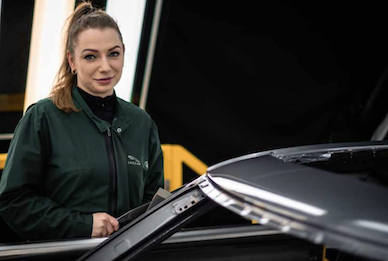By Mark McSherry
Jaguar Land Rover (JLR), a subsidiary of Tata Motors, announced it will invest £15 billion over the next five years to develop electric cars and autonomous-driving features.
The plan includes turning JLR’s UK Halewood plant on Merseyside into an all-electric facility, with the first medium-sized battery Range Rover model due in 2025.
JLR confirmed it will start to “invite applications for client orders for the modern luxury all-electric Range Rover from later this year.”
JLR said: “The first of its next generation medium-size modern luxury SUVs will be an all-electric model from the Range Rover family, launching in 2025 and built at Halewood in Merseyside, in a move that further affirms JLR’s commitment to the future of the UK car industry.
“And while EMA (electrified modular architecture) will now be electric only, as the trend to electrification in certain markets increases, JLR will retain the flexible modular longitudinal architecture (MLA) on which Range Rover and Range Rover Sport are built offering internal combustion engine (ICE), HYBRID and battery electric vehicle (BEV) options.
“This gives JLR uncompromised flexibility to adapt its vehicle line up to meet the needs of different markets around the world, that are moving at different speeds towards carbon net zero targets.”
JLR CEO Adrian Mardell said: “Two years ago, we launched our Reimagine strategy and since then we have made great progress, including launching two new critically acclaimed modern luxury Range Rover and Range Rover Sport models, joining the Defender family, for which there is record demand.
“We achieved this while navigating the headwinds of the pandemic and chip shortages, and successfully ramping up production of our most profitable models to deliver profit in Q3.
“Today I am proud to announce we are accelerating our electrification path, making one of our UK plants and our next-generation medium-size luxury SUV architecture fully electric.
“This investment enables us to deliver to our modern luxury electric future, developing new skills, and reaffirming our commitment to be carbon net zero by 2039.”
